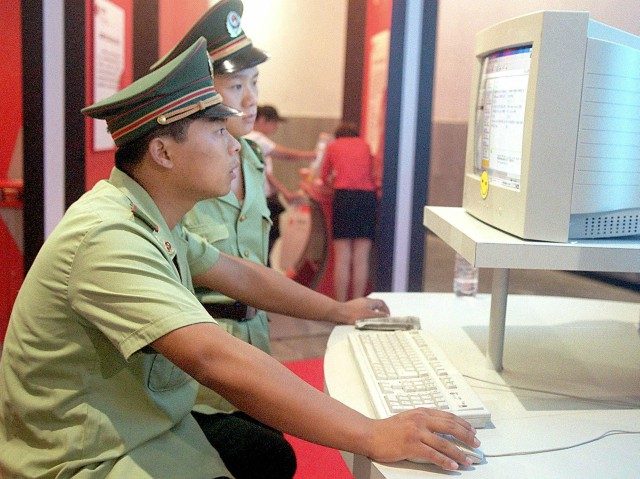Washington-based nonprofit Freedom House on Tuesday released the latest in a string of increasingly glum annual reports about Internet freedom.
The organization declared a “crisis” on social media, which authoritarian regimes increasingly use to control their populations and interfere with elections held in free countries. China was held up as the worst offender against Internet freedom for the fourth year running.
The Freedom House report judged that overall global Internet freedom “declined for the ninth consecutive year” due to censorship, surveillance, and A.I.-driven advances in propaganda and manipulation.
“Many governments are finding that on social media, propaganda works better than censorship. Authoritarians and populists around the globe are exploiting both human nature and computer algorithms to conquer the ballot box, running roughshod over rules designed to ensure free and fair elections,” said Freedom House President Mike Abramowitz.
“Advances in AI are driving a booming, unregulated market for social media surveillance. Even in countries with considerable safeguards for fundamental freedoms, there are already reports of abuse,” added Freedom House research director Adrian Shahbaz.
Shahbaz warned that social media will become a “Trojan horse for tyranny and oppression” if the largely American companies that own the largest platforms fail to vigorously promote “transparency and accountability in the digital age.”
Freedom House found that out of 65 countries surveyed, 33 have less Internet freedom than they did last year, while only 16 improved. An astounding 47 of those 65 countries have arrested Internet users for “political, social, or religious speech.” 40 of the countries have implemented some form of “sophisticated mass surveillance” on social media.
The United States was dinged as one of the countries that got worse:
U.S. law enforcement and immigration agencies increasingly monitored social media and conducted warrantless searches of travelers’ electronic devices, with little oversight or transparency. In a number of troubling cases, the monitoring targeted constitutionally protected activities such as peaceful protests and newsgathering. Disinformation was again prevalent around major political events, spread increasingly by domestic actors.
China had a particularly horrible year for Internet freedom due to the 30th anniversary of the Tiananmen Square massacre, an event the Communist government is attempting to erase from history, and the Hong Kong protest movement.
Freedom House researchers warned China has become “a leader in developing, employing, and exporting social media surveillance tools” employing both low and high technology. Beijing uses these tools to repress “any behavior that strays from what is acceptable under Xi Jinping Thought – the doctrine of China’s authoritarian leader.”
China’s use of Internet surveillance to oppress the Uyghur Muslims of Xinjiang province was mentioned in the report, as were its increasingly ham-fisted efforts to prevent dissident groups from using the Internet to organize.
Disinformation and manipulation were treated as a more serious concern than outright censorship in the 2019 report, although there was plenty of old-fashioned, heavy-handed speech policing to be found. 20 of the countries surveyed by Freedom House block some social media platforms and Internet communication tools, while 17 of them have shut down telecom networks during elections and times of unrest.
The U.S. chapter of the Freedom House report mentioned the controversies over deplatforming and politically biased content restriction, beginning with the approving conclusion that “government pressure on ISPs or content hosts to remove content is not a widespread problem,” but private pressure to do so is another matter. A few major 2019 stories about deplatforming and “seemingly arbitrary censorship conducted by content hosts” were discussed.
“Social media companies and other content providers often choose to remove content that violates their terms and conditions or their community guidelines. Many of the concerns regarding excessive or insufficient moderation of content on these platforms are centered on how the companies enforce their own rules,” the report noted later.
“Conservatives, including President Donald Trump, have accused social media platforms of deliberately censoring conservative views, though they have offered little evidence of a consistent political bias,” the report stated dismissively.

COMMENTS
Please let us know if you're having issues with commenting.